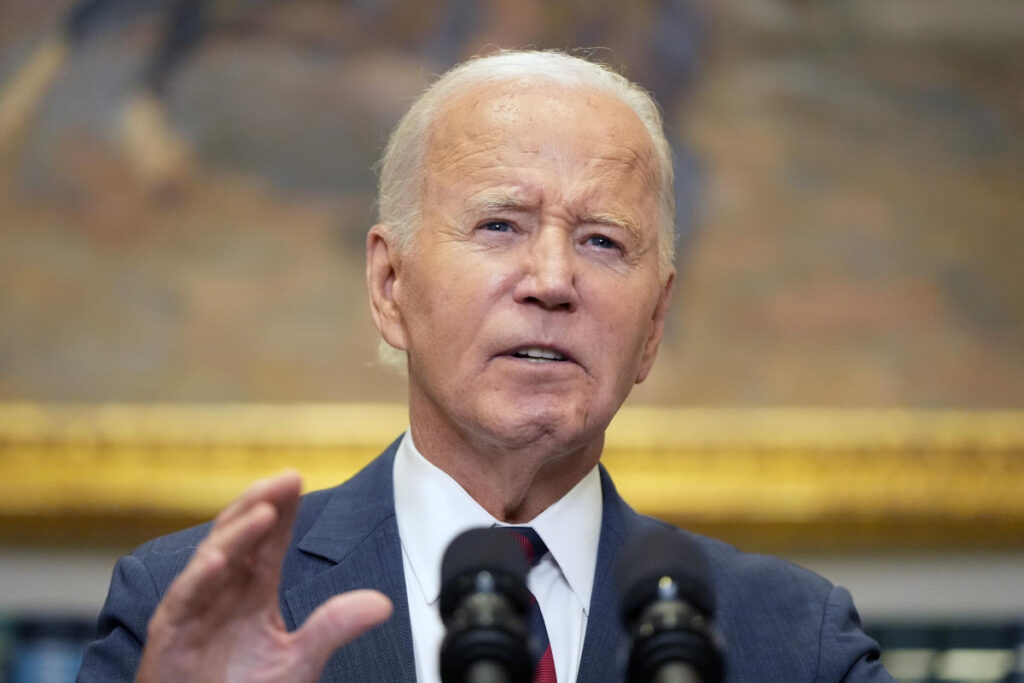In a recent address at the White House, President Joe Biden strongly condemned former President Donald Trump for propagating what he described as an “onslaught of lies” regarding the federal government’s response to Hurricane Helene, particularly as another storm, Hurricane Milton, loomed over Florida. Biden accused Trump and his allies of misrepresenting the efforts of the Federal Emergency Management Agency (FEMA) and emphasized the seriousness of such misinformation, which he characterized as “un-American.” Moreover, he pointedly addressed comments made by Georgia Representative Marjorie Taylor Greene, who allegedly claimed that the federal government possesses the capability to control the weather.
Biden expressed bewilderment over why his Republican opponents would choose to distort the truth about the government’s emergency response efforts. He emphasized that these misleading characterizations do not reflect American values and reaffirmed his commitment to being transparent and truthful in his administration. He conveyed the importance of unity and trust during times of crisis, reiterating that the government’s primary focus is on the well-being and safety of its citizens in the face of natural disasters. His firm stance against the spread of misinformation underscores a growing concern regarding the impact of false narratives on public trust and safety.
As Hurricane Milton approached landfall, Biden outlined the extensive preparations undertaken by the federal government to ensure public safety. He highlighted that 20 million meals and 40 million liters of water had been prepared in anticipation of the storm, alongside the deployment of military units equipped for search and rescue operations. He assured citizens in the affected areas that he and Vice President Kamala Harris would support them throughout the recovery process, stating, “We’ve got your back.” This emphasis on preparedness and support aimed to reassure the public that the government is fully engaged in protecting and aiding those in need.
The administration has faced criticism for its handling of weather-related emergencies, particularly from Trump, who has drawn comparisons between Biden’s approach and the notoriously inadequate response to Hurricane Katrina in 2005. At a recent rally, Trump claimed that Biden’s response to Hurricane Helene was “the worst” he had ever seen, contradicting the existing statistics that showed far fewer fatalities compared to Katrina. Trump’s remarks are aimed at galvanizing his base for the upcoming elections and shifting blame to the current administration, reflecting the deep political divide over disaster management and response.
Biden’s remarks came amid a broader trend of addressing misinformation within his administration, particularly from political adversaries. During a virtual briefing on Hurricane Milton preparedness, he reiterated his criticisms of Greene’s claims about the government’s weather control, calling them “beyond ridiculous” and likening them to notions found in comic books. The president’s frustrations stem from a desire to counteract the potential disinformation that could undermine public trust in government agencies during emergencies.
Overall, Biden’s strong rhetoric emphasizes the importance of truthful communication from leadership in times of crisis. His administration aims to reassure the public about disaster preparedness while simultaneously confronting the dissemination of false information that may lead to panic or distrust in governmental capabilities. As the nation grapples with the impacts of climate-related disasters, the discourse surrounding their management remains a critical issue in the upcoming electoral landscape, where Biden and his administration are determined to establish a narrative of accountability and support amidst challenges posed by climate change and extreme weather events.

